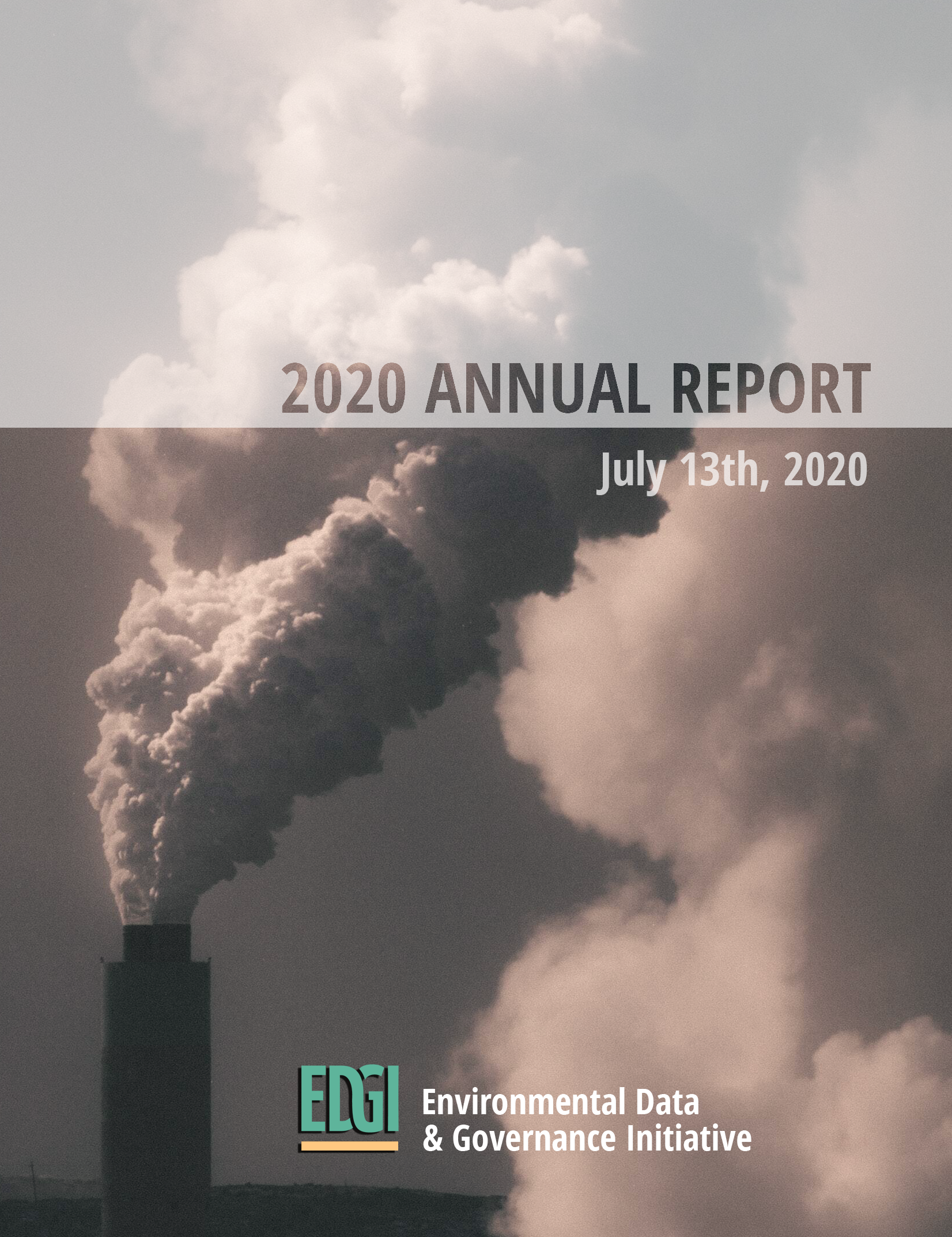LETTER FROM OUR COORDINATING COMMITTEE
Our Annual Report celebrates and reviews EDGI’s meaningful work in the last year. In this letter we wish to reflect on the enormity of the task at hand in this crucial moment of intersecting crises of social, racial, and environmental injustices and irreversible climate change, and to express our commitment to redoubling our efforts. Despite the earnest efforts of watchdog groups, journalists, and advocates from all walks of life, the Trump Administration has been disturbingly effective in rolling back environmental protections and dismantling federal agencies. In the face of the COVID-19 crisis, the EPA has abdicated another alarming share of its responsibility for enforcing environmental laws (see our commentary EPA’s COVID-19 Leniency is a Free Pass to Pollute).
It is vital in this time to continue shining light on the erosion of public health and environmental protections, while also actively imagining and building toward more effective and more just forms of environmental protection. Such protections would move beyond permission-to-pollute regulations by embracing environmental and social justice, green chemistry, and renewable energy to work simultaneously toward restoring a habitable, biodiverse planet and building sustainable, just societies.
We at EDGI strive together toward different forms of research, community, and collaboration that enable healthier systems to flourish. In pursuit of that, we are envisioning and designing how environmental governance may be reconstructed more from the bottom up, including the role that data and community-led science could play in a Green New Deal. We have several forthcoming publications, in Science for the People and elsewhere, on these topics.
Complementing this vision, we seek to enact new public forms of networked public data analysis through a set of events called Environmental Enforcement Watch (EEW). EEW events will support congressional districts, watershed groups, environmental organizations, and environmental justice groups to document, analyze, and visualize violations of environmental laws, inspections, and enforcement activities under the Trump Administration. These events will explore and develop more meaningful and actionable forms of public engagement with environmental enforcement data. In response to EPA’s COVID-19 memo that put enforcement actions on hold, we’re developing a set of EEW events that focus particularly on any increase in emissions during this crisis. Please reach out to us through environmentalenforcementwatch.org if you or your group are interested in organizing an EEW event.
An informed public is vital to the future of our democracy as well as our environment. Though the outcome of the November 2020 elections will impact the context in which we work, we are anticipating the range of possible outcomes with the strategic flexibility we have shown in the past. Our work will inform a new incoming administration if there is one, as well as the environmental and science committees of the House of Representatives and Senate. Regardless of the election outcomes, we also plan to continue highlighting issues for broad public consumption.
Over the next year, we will sustain this work while also laying vital groundwork for a brighter future for environmental data and governance in which justice and equity stand at the center. We will explore how environmental, climate, and data governance can work better for the most environmentally vulnerable particularly naming and analyzing racism as a key driver of health and environmental inequity. We continue to focus on holding governing agencies and industries accountable through transparent, collaborative, community-centered environmental research, technology, and decision-making. Internally we are working on our systems of horizontal organizing, collaborative decision-making, and remote-togetherness, sharing what we learn through our blog.
In this transformational moment we continue developing EDGI as an agent for collaborative environmental care and conscientious co-creation of just and sustainable futures. Thank you for your interest in our work.
HIGHLIGHTS
- We have built out our communications infrastructure: the articles published in just the last year which reference our work were viewed by an estimated 4.9 million readers, and shared an estimated 439,000 times on social media.
- We have sought out and strengthened strategic partnerships, such as the Earth Science Information Partners (ESIP) and Internet Archive.
- We have consciously built upon our unique interdisciplinary capacity through projects that span our working groups. This is reflected particularly in our new initiative: a multifaceted approach to the Enforcement and Compliance History Online (ECHO), promoting justice by ensuring true accessibility involving bottom-up design and fair and caring data practices: a set of events called Environmental Enforcement Watch (EEW).
- We have taken important steps to achieve long-term organizational sustainability through process (e.g. implementation of contractor review) and work (e.g. stabilization of a fundraising committee).
- We have welcomed a new working group, the Environmental History Action Collaborative (EHAC), further rounding out our interdisciplinary capacity and context awareness.
- We have contributed to experiential learning through EDGI projects as part of university courses at Northeastern University, Stony Brook University, Princeton, and CUNY.
- We have continued producing original and important reports and publications, including summary reports on changes over time, such as The New Digital Landscape: How the Trump Administration Has Undermined Federal Web Infrastructures for Climate Information, and a three-part series in progress that looks at the dismantling of federal environmental regulation, An Embattled Landscape: Federal Environmental Science Integrity in the United States Today.
“EDGI

